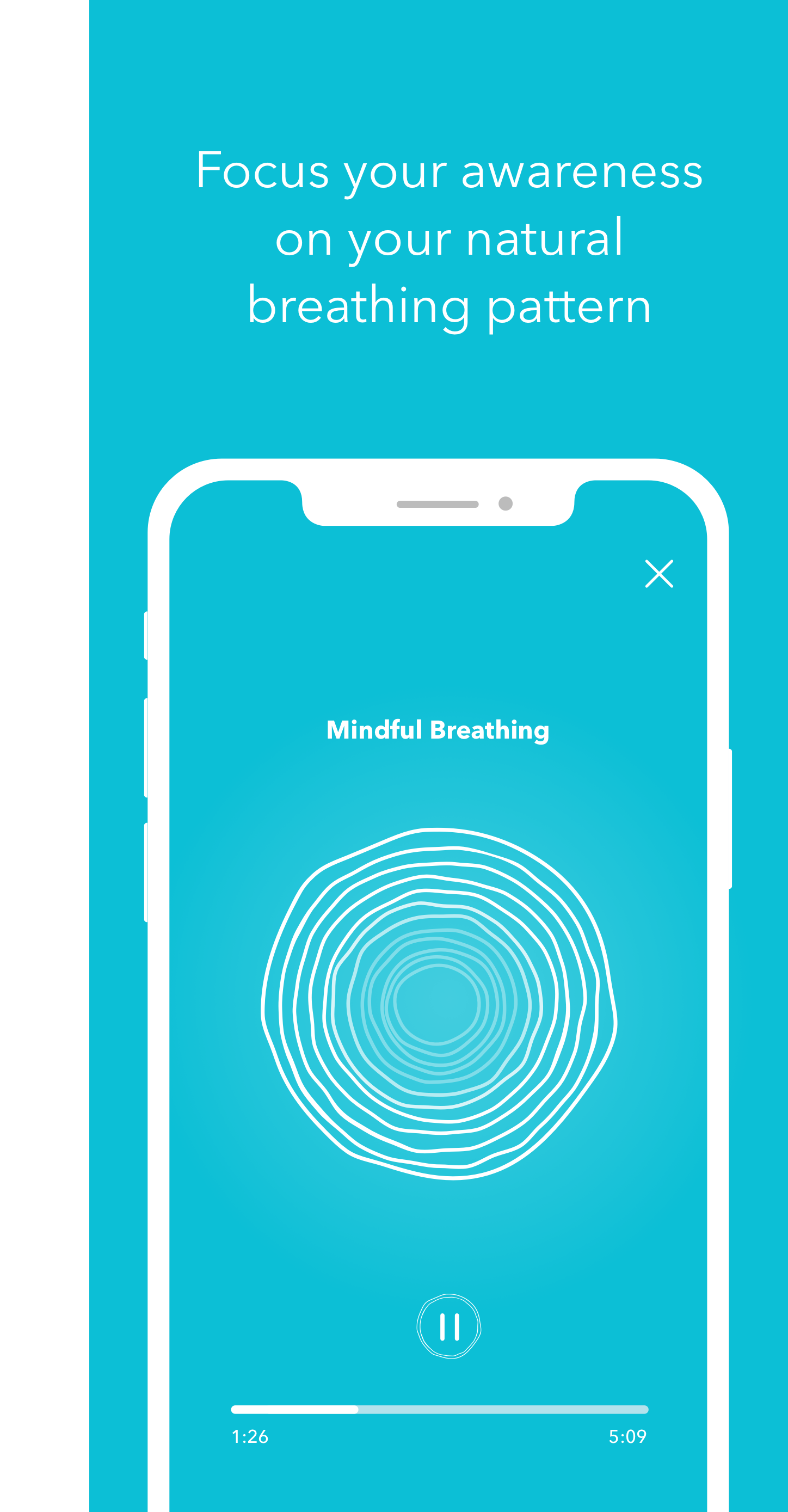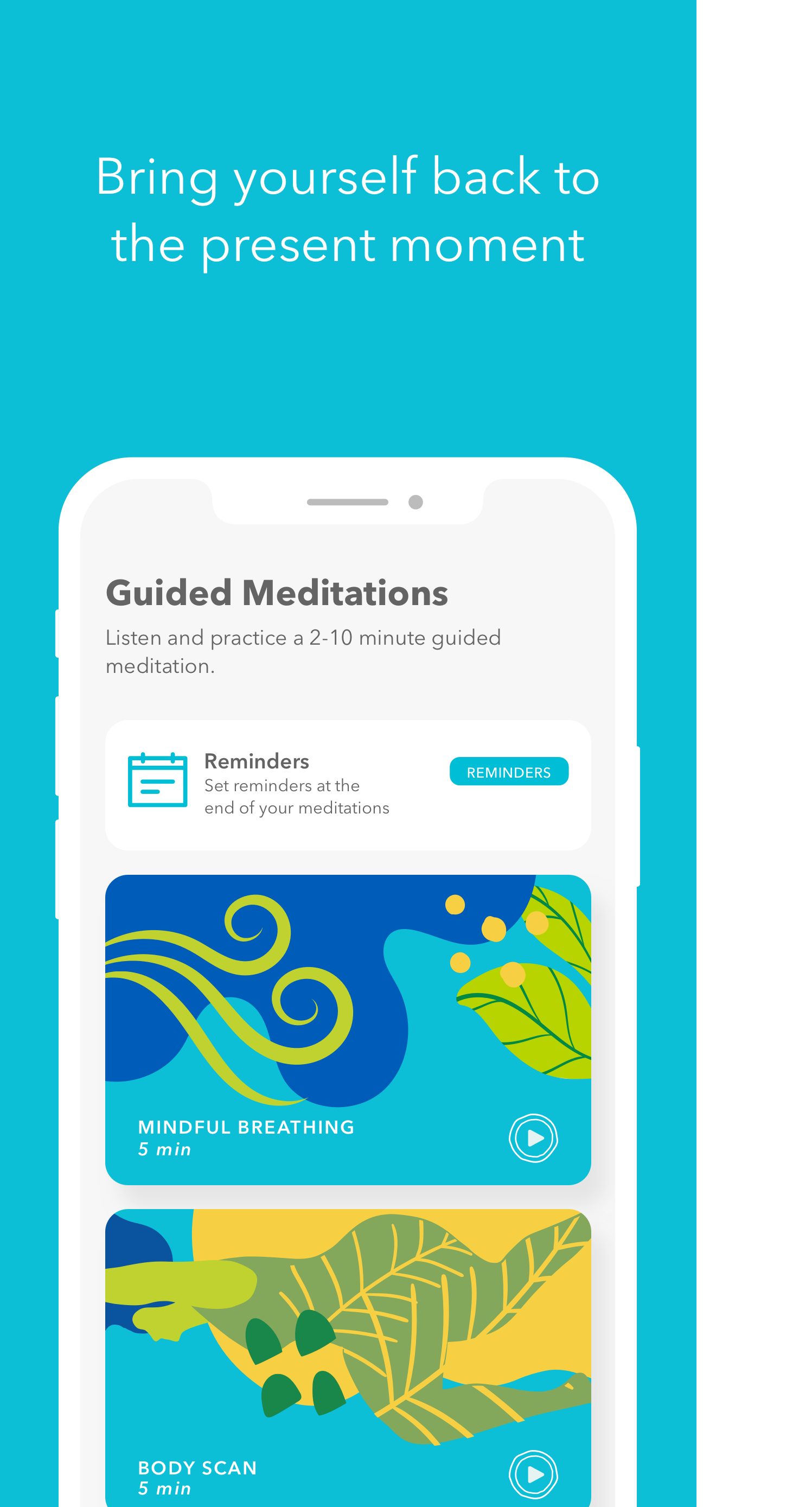* Reposted with permission from The Dalai Lama Center on June 22, 2021
Developed by the BC Children's Kelty Mental Health Resource Centre and BC Children's Centre for Mindfulness, the (free!) Breathr app has recently been revamped and relaunched. Dr. Dzung Vo, Head of the Division of Adolescent Health and Medicine at BC Children’s Hospital, and the Director of BC Children’s Hospital Centre for Mindfulness, and Danielle Burch, Project Manager, Health Promotion & Health Literacy, BC Children's Hospital, and Dr. Joanna McDermid, Associate Director, BC Children’s Hospital Centre for Mindfulness, worked together as part of the team bringing this App to life, and shared with us the story and intent behind Breathr.
The Breathr App introduces mindfulness to youth and young adults in fun and accessible ways, through body scans, guided breathing, walking meditation, and self-compassion practices, while sharing the brain science to back them up. As we know from research, practicing mindfulness can benefit anyone’s social and emotional well-being by reducing stress, insomnia, anxiety and depression; improving memory and focus; and strengthening our connection and relationships with others. This new version of the App has some new mindfulness practices and a greater emphasis on connection and self-compassion.
Breathr was crafted in consultation with over 20 young people, who gave their feedback on everything from the look and feel of the App to its gender inclusiveness – adding small touches like using Dr. Dzung Vo’s and Dr. Joanna McDermid’s first names to select guided meditations. Receiving reactions and input from the youth lens was, as Burch shares, instrumental in designing the App.
the look and feel of the App to its gender inclusiveness – adding small touches like using Dr. Dzung Vo’s and Dr. Joanna McDermid’s first names to select guided meditations. Receiving reactions and input from the youth lens was, as Burch shares, instrumental in designing the App.
Both the design and user experience of the App were taken into equal consideration as the content when building it, with the intention that using it would be “an implicitly mindful experience, with a spirit of self-compassion and non-striving”, as Dr. Vo describes. Its serene layout offers just the right balance of choice in practices: enough selection to offer variety, yet few enough options so as not to overwhelm the user.
Recognizing that adolescence is both a “key risk window” as well as a “window of opportunity” to develop resilience and healthy behaviors, the App endeavours to make mindfulness as accessible as possible to both those familiar with it and also to those who are brand new to it. Learning how to cope with stress and manage difficult emotions can set teens up for a healthy adulthood, and lower the risk of them developing mental health issues such as anxiety, depression, eating disorders, and addictions. Mindfulness can be used to address a wide range of stressors, from everyday stresses related to school and family, to physical pain and illness, as well as mental health concerns. Mindfulness is not about any given practice or tool; rather it is a way of life–and the Breathr App is one of many “doors”, or entry points into this lifelong journey, with short and simple practices to explore, like an experiment, to see what you might discover, Dr. Vo shares.
While the pandemic has revealed the risks inherent in overreliance on technology, particularly for teens, this App is a good example of how technology can be a beneficial tool, when used with clear intent. It is also a reminder of one of the primary “Why’s” behind technology: building connection. As we transition from online to more frequent in person social encounters, teenagers may need to relearn how to relate to their peers–which is so critical to adolescent development. And mindfulness is all about cultivating connection moment to moment. Practices that go back hundreds and thousands of years all direct towards the purpose of restoring friendly connection when connection is lost: to self, to others, and to the body. Self-compassion  practices, inspired and adapted from experts in this area such as Kristin Neff (who will be presenting at our upcoming Heart-Mind Live webinar, Creative Practices to Spark Connection & Well-Being) can be helpful in restoring a positive way of self-relating, when inner critics become particularly adversarial.
practices, inspired and adapted from experts in this area such as Kristin Neff (who will be presenting at our upcoming Heart-Mind Live webinar, Creative Practices to Spark Connection & Well-Being) can be helpful in restoring a positive way of self-relating, when inner critics become particularly adversarial.
Knowing the benefits of mindfulness, it is easy for adults to want to press the importance of it upon the youth we know and care about. However, far more important than trying to teach mindfulness to youth or urging them to download the Breathr App, is for us as adults to embody mindfulness in ourselves. When we as adults are natural models for mindfulness as a way of life, and demonstrate how it allows us to cope with stress and connect more authentically with others, the young people around us can see for themselves its benefits, and be more likely to freely and enthusiastically choose to practice it. As research and experience shows, putting our own oxygen masks on first is elemental to our capacity to care for ourselves and those around us–and so we encourage you to take a moment for yourself, and try out Breathr.